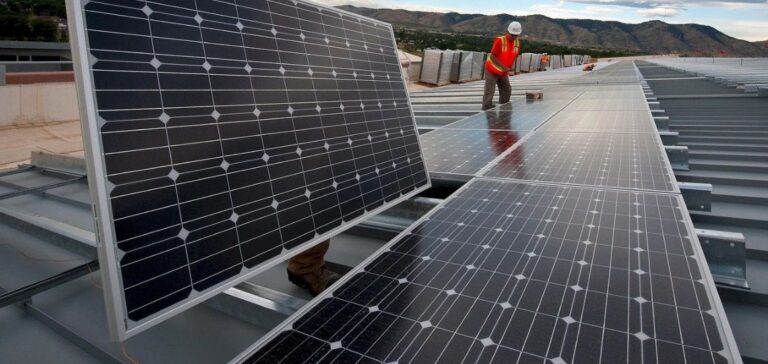U.S. authorities are ramping up their fight against the dumping of imported solar panels from Southeast Asia. The Department of Commerce recently announced preliminary anti-dumping duties on crystalline silicon solar cells originating from Cambodia, Malaysia, Thailand, and Vietnam. This measure follows thorough investigations triggered by complaints filed by the American Alliance for Solar Manufacturing Trade Committee.
American manufacturers, including First Solar and Qcells, accuse Chinese companies of circumventing existing tariffs by relocating their production to these countries. The preliminary duty rates range from 21% to 271%, targeting major players like JinkoSolar and Trina Solar.
Variable Tariffs by Country and Company
The imposed duties vary by company and country of origin. For instance:
– Cambodia: A rate of 125.37%, primarily affecting Hounen and Solar Long PV Tech.
– Malaysia: Rates of 21.31% for JinkoSolar and 0% for Hanwha Q CELLS. Other companies, such as Baojia New Energy, face duties of 81.24%.
– Thailand: Trina Solar is subject to a 77.85% rate.
– Vietnam: Rates peak at 271.28%, impacting companies like Vietnergy and VSUN.
These variations reflect the findings of the investigations, highlighting distinct practices among companies and production strategies.
Implications for the Solar Industry
These duties are expected to increase costs for American importers, directly affecting consumers and slowing solar projects in a context where energy transition is critical. Moreover, Chinese companies and their partners might redirect exports to other markets, such as Europe, to mitigate losses.
Impact on Supply Chains and Trade Relations
Disruptions in U.S. imports could push domestic firms to invest more in local manufacturing. However, these measures might also exacerbate trade tensions with China while prompting the affected Asian countries to negotiate tariff adjustments.
Final decisions scheduled for 2025 will determine whether these duties become permanent, but their impact is already reshaping global dynamics in the solar sector.






















